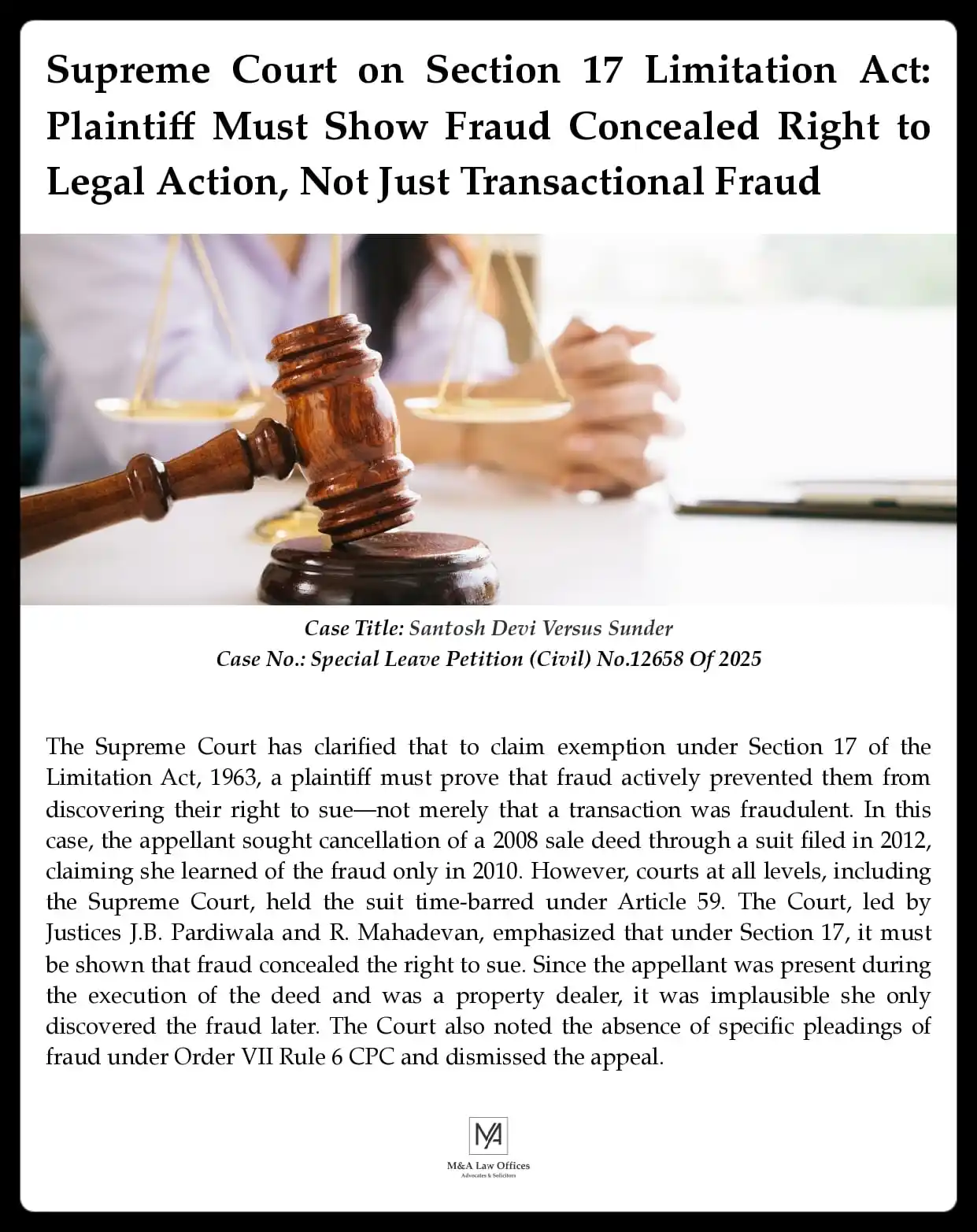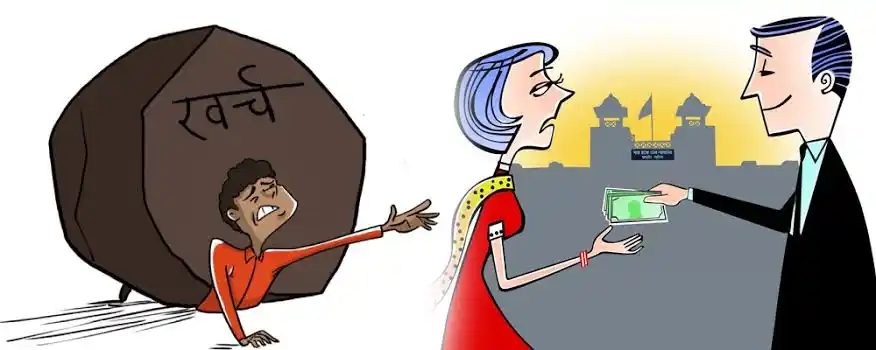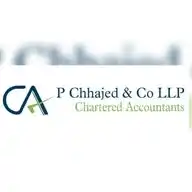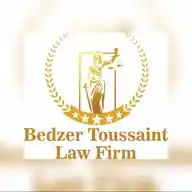
M&A Law Offices
8 subscribers
About M&A Law Offices
M&A Law Offices is a full service law firm spread across various practice areas, positioned to advise clients with their legal needs across sectors.
Similar Channels
Swipe to see more
Posts

SC on Limitation Act S.17 To claim exemption from the 3-year limitation period, plaintiffs must show that fraud prevented them from knowing their right to sue—not just that the sale was fraudulent. Mere allegation of fraud in the transaction isn't enough. #SupremeCourt #LimitationAct #LegalUpdate


*Section 17 Limitation Act: Plaintiff Must Prove Fraud Obstructed Awareness of Right to Sue, Says Supreme Court* The Supreme Court has clarified that to claim an exemption under Section 17 of the Limitation Act, 1963, a plaintiff must establish that fraud actively concealed their right to sue—not merely allege that the underlying transaction was fraudulent. Section 17 provides that the limitation period in cases involving fraud begins only when the fraud is discovered. A bench comprising Justices J.B. Pardiwala and R. Mahadevan delivered the judgment while hearing an appeal involving a 2008 sale deed. The plaintiff filed a suit in 2012 seeking its cancellation, claiming the fraud came to light only in 2010. However, the trial court, appellate court, and High Court all dismissed the suit as time-barred under Article 59, which prescribes a three-year limitation. Rejecting the plaintiff’s reliance on Section 17, the Court held that the exemption applies only if the fraud prevented the plaintiff from discovering her legal right to sue. Merely alleging fraud in the execution of the sale deed was insufficient. The Court emphasized that the plaintiff, being present at the time of execution and a property dealer by profession, was expected to exercise due diligence. It found her claim of discovering the fraud only in 2010 implausible. Additionally, the plaint lacked specific pleadings of fraud as required under Order VII Rule 6 of the CPC. The Court concluded that Section 17 protection requires proof that fraud actively obstructed awareness of the legal remedy—not just that the transaction itself was fraudulent. Accordingly, the appeal was dismissed. #SupremeCourtOfIndia #LimitationAct #Section17 #Article59 #FraudAndLimitation #LegalRemedies #KnowledgeOfRightToSue #DelayInFilingSuit #OrderVIIRule6 #CivilProcedureCode #LimitationDefense #FraudInPropertySale #PropertyDispute #LegalAwareness #LitigationStrategy #CivilLawIndia #LegalUpdate #RecentJudgment

Wife entitled to maintenance even if she refuses to comply with cohabitation decree The Supreme Court has ruled that a wife can claim maintenance even if she refuses to live with her husband, as long as she has a valid reason. In this case, a woman from Jharkhand said she wasn’t even allowed to use the washroom in her marital home. The family court sided with her and ordered the husband to pay ₹10,000 per month. When he challenged this, arguing that a court order for her to return should mean something, the Supreme Court disagreed, stating that such a decree doesn’t cancel her right to maintenance. While the ruling ensures women aren’t forced into unfair living conditions, it also opens the door for legal complications in future disputes. In the end, the wife gets financial support, the husband pays the price, and the courts are left with yet another complex marital case to navigate. #SupremeCourt #MaintenanceRights #MatrimonialLaw #LegalPrecedent #FamilyLaw #CourtRuling













